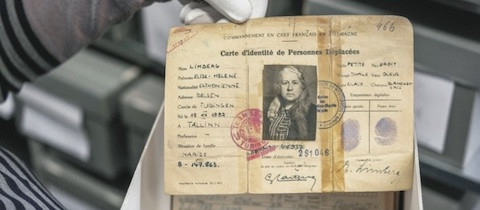
GCED Basic Search Form
Quick Search
You are here
News

When Norng Chann Phal finally confronted his accused perpetrator in the Extraordinary Chambers in the Courts of Cambodia, there remained a shadow of uncertainty. He had been 9, and his brother only 6, when they were prisoners at the Khmer Rouge’s notorious S-21 prison, and the accused did not recognize him at the trial decades later. It was only through the archives at the Tuol Sleng Genocide Museum, on the site of the former interrogation and detention centre, that the truth was ascribed to the atrocity crimes perpetrated there.
The regime murdered both of Mr. Norng Chann Phal’s parents at the nearby Choeung Ek killing fields on the delusional charges that they were spies or traitors. “The archives are the key tool to remember the victims who lost their lives during the regime,” Hang Nisay, Director of the Tuol Sleng Genocide Museum, said. “This brings the victims justice, not only by bringing a perpetrator to trial, but mentally to heal their feelings and so that they will be recognized by the community around them and the younger generation.”
Reflecting on the role of archives, and marking the 100 days of remembrance of the Genocide against the Tutsi in Rwanda in 1994, on 22 June 2021 UNESCO and the UN Department of Global Communications organized a virtual panel discussion on “Memory at risk: the importance of genocide archives for justice , remembrance, research, and education”. Moderated by James Smith, CEO and Co-Founder of the Aegis Trust, the discussion brought together directors of archives, researchers and human rights advocates, working with documentary heritage related to the German Nazi regime, the Khmer Rouge regime in Cambodia, the 1994 genocide against the Tutsi in Rwanda and the crimes committed by ISIL (Da’esh) against the Yazidi people in Sinjar, Iraq.
The evidence of these horrific crimes bears witness to the lives of each victim, family and community, whose memory must not be erased from history. “The first beneficiaries of archives are still the families of the victims,” Floriane Azoulay, Director of the Arolsen Archive and International Center on Nazi Persecution, said. “Documentary records played a really important role in finding the missing persons and seeking compensation. Now we are helping families mend the holes in their family histories. We still receive 23,000 enquiries per year.” Preserving, protecting and transmitting these records also forms the basis of research and education about genocide and other atrocity crimes, to equip people with the knowledge, skills, values and attitudes that can help to prevent violence in the future.
As well as honouring victims and survivors, accurate historical accounts are fundamental to conflict transformation processes, better understanding the complex histories related to genocide, and seeking justice. “The documentation and collection of evidence and testimonies of survivors ensures that these crimes are not forgotten and that there is recognition of the genocide,” said Abid Shamdeen, the Executive Director of Nadia’s Initiative, who advocates for Yazidi survivors alongside Nobel Peace Prize Laureate and Goodwill Ambassador for the Dignity of Survivors of Human Trafficking, United Nations Office on Drugs and Crime, Nadia Murad. “In the case of Yazidis, there was public evidence in real time as ISIL (Da’esh) communicated about what they were doing over technology.”
Archives have been central to remembrance in Rwanda, and the subject of recent research on the involvement of the French government. Based on archival records in France and Rwanda, two independent research reports have contributed greater transparency to the processes leading up to and during the 1994 genocide, including to the controversial public debate about the involvement of the French government. Vincent Duclert, head of the French historical commission on France, Rwanda and the genocide against the Tutsi, said the essential role of the commission had been to contribute to historical clarity against the backdrop of charged political debates.
More than 60,000 pages of documents and 8,000 audiovisual recordings, including from both survivors and perpetrators of the 1994 genocide, have been collected in the context of the community-based Gacaca Courts. As Jean Damascene Bizimana, Executive Secretary of the National Commission for the Fight against Genocide in Rwanda, pointed out during the panel discussion, the historical records are still being used in judicial proceedings seeking justice for the victims.
The accuracy and transmission of historical accounts takes on additional importance as disinformation, “fake news” and conspiracy theories proliferate worldwide. Archives as repositories of authentic historical information are an essential counterbalance to narratives that seek to distort or deny genocidal pasts and the experiences of victims and survivors.
The panel discussion was jointly organized by UNESCO and the United Nations Department of Global Communications-mandated outreach programmes on the Holocaust and on the 1994 Genocide against the Tutsi in Rwanda as part of the United Nations online series “Beyond the Long Shadow”. UNESCO supports Member States in the preservation and protection of documentary heritage through the Memory of the World programme and promotes genocide remembrance and education through the Organizations programme on Global Citizenship Education
Photo: Arolsen Archives
URL:
